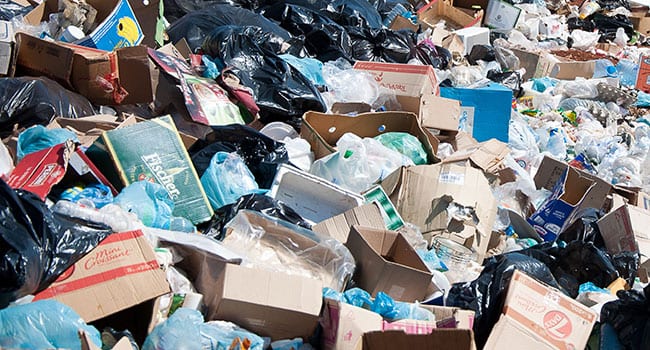 I felt guilty tossing mixed household and construction materials into container bins at the landfill. We did our very best to reuse and recycle, but we still had a couple of truckloads of stuff to discard.
I felt guilty tossing mixed household and construction materials into container bins at the landfill. We did our very best to reuse and recycle, but we still had a couple of truckloads of stuff to discard.
I hadn’t been to the landfill for years, maybe decades, and I was shocked at the change in the landscape.
I had expected the dump of my childhood.
The dump was a place we occasionally went to with my father on a Sunday afternoon to throw things away. Usually it was construction material. While we never picked up any discarded items (my mother would not have been pleased had we returned home with someone else’s junk), some people went home with treasures plucked from the debris.
There was a natural depression in the earth back then and into this depression heavy equipment dumped and buried all manner of things, from food waste to scrap metal. As we drove along the dusty road, we could look down at the garbage.
Driving along that same road today, you look up at a mountain constructed from garbage.
“Everything has an economic lifespan,” I told myself as we drove away. And while it’s certainly true that things wear out and we have to get rid of them somewhere, that mountain of junk altering the landscape brought home an inconvenient truth.
We consume and waste too much. Of course, consumer spending is an important component of a healthy economy. But at some point, each of us needs to make a decision about our consumption. We have to decide where we draw the line between our wants and our needs.
Of course, it’s easier said than done. It’s especially difficult when we are confronted with aisle after aisle of attractive goods. Never mind that it is often cheaply-manufactured merchandise that breaks down or wears out, and which we must replace within a few years.
In 2015, Pope Francis issued his environmental encyclical, Laudato Si, On Care For Our Common Home. The document brought a spiritual perspective to the discussion on the environment and climate change. It also challenged people to think about production and consumption as a moral and not simply economic acts. Less is more, said the pontiff, and he advocated for a spirit of moderation in our consumption of material goods.
Most of us, particularly if we live in larger centres, rarely go to the landfill. We put out our allotted number of garbage cans on the curb for pickup. We gradually dole out waste from a household project or from cleaning out overstuffed closets, putting small amounts into the regular trash. We pay contractors to haul materials away. We take advantage of free pickup days.
Presto! Our garbage vanishes. Out of sight, out of mind.
We feel virtuous when we recycle. We feel generous when we donate our unwanted goods to charity.
It is only when something dramatic drives home the point of our wasteful overconsumption that we take notice.
For me, it was a trip to the landfill. Until then, I felt pretty smug about my heroic efforts to reuse and recycle.
But that mountain of garbage, emblematic of the environmental damage of overconsumption, horrified and humbled me.
Louise McEwan has degrees in English and Theology. She has a background in education and faith formation.
Louise is a Troy Media Thought Leader. Why aren’t you?
The views, opinions and positions expressed by columnists and contributors are the author’s alone. They do not inherently or expressly reflect the views, opinions and/or positions of our publication.
